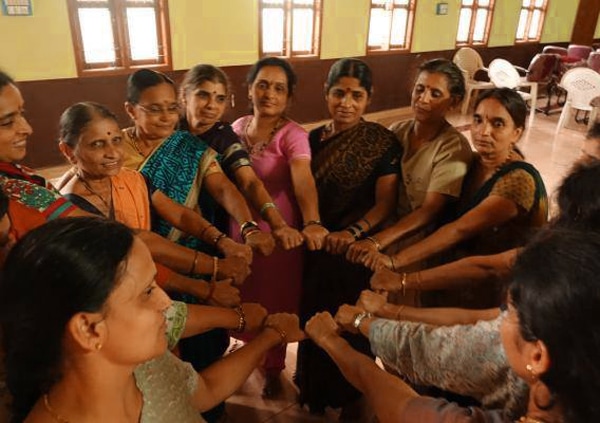SDGs 2030: Through a Gendered Lens
The Sustainable Development Goals for 2030 are striving to reduce poverty worldwide, increase the number of people in schools, eliminate hunger, and mitigate climate change. And there is one goal that remains at the center of all others — Goal #5: Gender Equality.
A new report from UN Women, "Turning Promises into Action: Gender Equality in the 2030 Agenda for Sustainable Development" puts the 2030 Agenda for Sustainable Development in the spotlight, looking at its progress in terms of gender equality and the current status of women worldwide.
Across a number of different sectors globally, women are among those most vulnerable to inequity and injustices. Research from the UN Women's report shows that women between the ages of 25-34 have a 22% higher rate of poverty than men; there a 15 million girls not in primary school; and there still remains an alarming 23% pay gap between women and men in the job market.
Additionally, as research and WEA's work points out, women often have less access to jobs, and face more legal barriers when it comes to owning land, accessing credit and inheriting wealth. Women are more likely to be primarily responsible for unpaid forms of work, including childcare, cooking and housework. As a result of a combination of these and other key factors, women are often placed at greater risk of food insecurity, physical or sexual violence, and climate change impacts.
For these reasons, while the SDGs are inspiring and necessary in their work towards a more sustainable future, the way in which the UN measures the overall success of the SDG's must go beyond siloed data points like "national averages," and take into account the realities of people and communities that may slip through the cracks of this data. Gender equality is not a single issue struggle. In order to see true progress on Goal #5, each and every Sustainable Development Goal must be analyzed with accurate gender-specific data to ensure equality is being met, something that is currently lacking in measurements for success and progress.
“The evidence is clear: If we want to solve the world’s biggest problems, we need to break down the silos and work together across issues, sectors, and geographies — with women at the center,” – Katja Iversen, CEO of Women Deliver.
The UN Women's report states that, though achieving the SDGs is indeed a global priority, there has been limited action by governments to reshape policies, investments and programs to support gender equality around the world. The way forward, the report suggests, is a revolution in democratic governance and public action to make theory a reality. This includes action and cooperation between communities and powerful global players (sovereign states, international financial institutions and transnational corporations). The report suggests that better gender-specific data collection, aligning policies and programs with this data, increasing financial support for women's organizations, and creating community participation in this work will help us move to a more equitable future.
"Women's rights organizations were effective in building coalitions and alliances to put gender equality at the center. Such participatory processes and strategic alliances are also needed to ensure effective and gender responsive implementation, follow up and review." –Turning Promises into Action Report
Since our launch in 2006, WEA has been dedicated to nurturing these efforts by uplifting and connecting grassroots, women leaders around the world. These leaders know first-hand the impacts—social, economic and environmental—their communities continue to experience that are often caused or exacerbated by gender inequality.
WEA's work strongly aligns with the goals of the SDGs as well as UN Women's findings. We know that the way forward is through the leadership of these grassroots women who are building the strategies, solutions, and solidarity needed to address the threats and injustices their communities face.

Photo: Women's Earth Alliance
Around the world, WEA women are preserving indigenous seeds and plant knowledge key to our survival; selling clean cookstoves that save lives and reduce the destruction of the forests; modeling the small-scale regenerative farming practices that will feed our planet; protecting our dwindling water sources; staving off destructive and toxic energy extraction; and shaping cultures of peace. They are winning political positions, building grassroots movements, expanding economic opportunities, and most importantly, passing on their knowledge to thousands of other emerging leaders.
To achieve these Sustainable Development Goals, putting women at the center is essential—not just as beneficiaries of policies and aid, but as architects of transformation.
For more resources and insights on the Turning Promises into Action Report, see:
- Borderline: reliable data on women is crucial to measuring empowerment and equality (UNCTAD)
- Women are Poorer and Hungrier then Men Across the World, UN Report Says (Washington Post)
- Progress on Gender Equality 'Unacceptably Slow': UN Women (Devex)
- Opinion: How to Make Progress on the SDGs? Prioritize Gender Equality (Devex)
